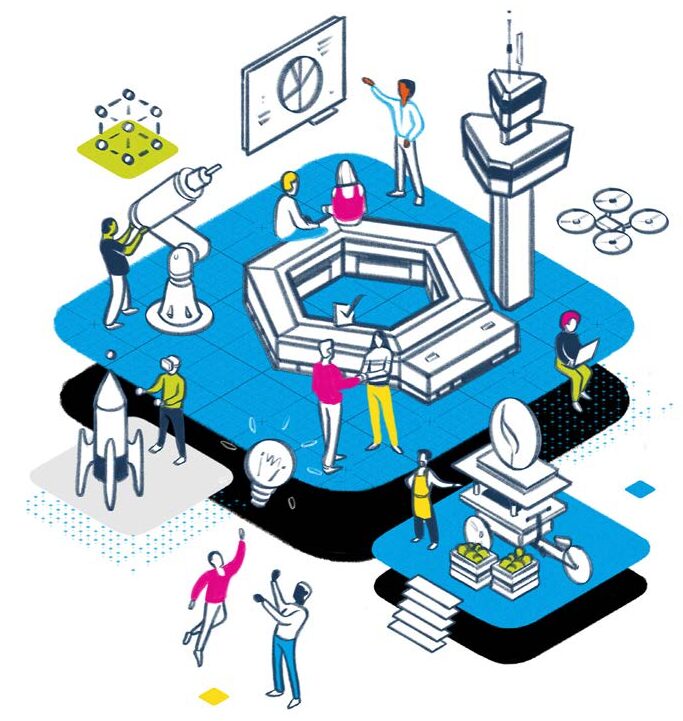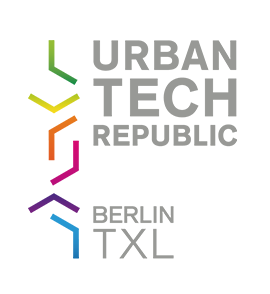Development Partnership
The development partnership – the collaborative format for innovative use cases at the FUTR HUB
Successful digitalization is achieved only through the interaction of various actors. To develop innovative, user-centered services that offer tangible added value, a cooperative format was launched in the FUTR HUB – the development partnership.

The development partnership is therefore the FUTR HUB’s format for exchange and collaboration, to identify and realize relevant use cases. This is where needs, expertise and stakeholders come together to develop solutions and applications in the various areas of district development together. The way this happens is in the form of collaboratively developed and implemented use cases. The development partners work together, pool ideas, define requirements and collectively develop solutions and applications. In doing so, the development partnership ensures that synergies between the actors involved can be identified, optimized and exploited in Berlin TXL – and beyond.
The co-creation process also ensures the interoperability of the data platform with the various technical systems in the district, and guarantees data security through an agreed data governance policy, that is to say by means of guidelines for handling and exchanging data across companies and sectors.
Development partners from the fields of supply and disposal are already working on this, while start-ups, research institutes and industry players are warmly invited to engage in dialog and implementation.
